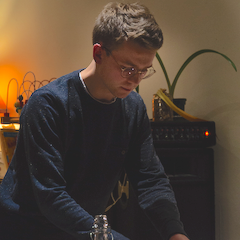Bizet’s Carmen is an opera about what it means to love someone. The eponymous gypsy, a 19th-century French stereotype of an exotic, liberated woman from Andalusia, emerges shortly into the first act and sings her famous Habanera: “Love is a rebellious bird”; “Love is a Gypsy child, it doesn’t follow the law”. Along with her female co-workers from the tobacco factory, Carmen is taking a break to smoke and flirt with the soldiers, among them the reluctant Don José. José is soon to become torn between his fascination with the dangerous, seductive Carmen, and his fondness for Micaëla, a pious young woman whom his mother wants him to marry. Although Carmen requites José’s burgeoning desire when the toreador Escamillo comes on the scene, the young man falls prey to his own overbearing sexual jealousy and his paranoid fear of Carmen’s independence, leading to the numbing brutality of the opera’s final minute.
Oper Leipzig has delivered a vivid production of Bizet’s well-loved classic, straightforward in its style and interpretation but filled with excellent performances, energy and brilliance. During the first act, the stage is always buzzing with activity: soldiers on duty or at rest, the exuberant fun of the children’s chorus and their playful jostling with the Lieutenant Zuniga, the women streaming in and out of the factory. The set design and direction by Lindy Hume is effective and simple, capturing the monumentality of Seville’s old walls and supplementing them with metal steps and walkways to make the best use of height and space. The large chorus is always in flux but their movements are never cluttered or distracting.
Use of the revolving stage is also used tastefully in Act 2 to follow the escalating tension in Carmen and José’s relationship as they step out of Lillas Pastia's dingy bar. The lighting design created many special atmospheres and was often strikingly beautiful and significant to the underlying themes, not least when Escamillo arrives at the bar and sings his famous aria under a spotlight, surrounded by smoke, before Carmen herself is backlit to project a huge shadow on the wall behind him. At this point we realise that Carmen and Escamillo are the theatrical superstars within the plot, living their own larger-than-life fantasies, and are a league away from the desperate and confused Don José. From this moment, we know that Carmen and José’s romance is doomed.
Kathrin Göring’s Carmen is one to remember. While she could have made more from her habanera, she explored a huge emotional and psychological range, imbuing the character with vitality, creativity and inner resilience as well the customary sultry sexuality. Göring’s acting and physicality was varied and intricate, always appropriately in excess of the scene, often making use of expressive flamenco-like hand gestures, and only occasionally resorting to more contemporary movements which appeared awkward and anachronistic in a traditional production like this. Her singing reached a haunting climax in Act 3 as she turns over the tarot cards to reveal a presentiment of death.
Leonardo Caimi’s depiction of Don José’s descent was dramatic and powerful and his Act 2 duet with Carmen brought out the ambivalent conflicts of his love. Gezim Myshketa’s Escamillo was superbly forceful and menacing, bringing a dark acidity to his toreador aria and singing with panache. Carmen’s companions Mercédès and Frasquita, performed by Sandra Maxheimer and Aneta Ručková respectively, were underdeveloped as characters but sang well and brought energy to each scene. The orchestra, under the baton of Matthias Foremny, was consistently sumptuous and smooth with great attention to detail (including the gypsy violin stylings heard after the fight scene in Act 1), complementing the singers to perfection.
Carmen may think she understands the nature of love, but we should listen more closely to the other women of the tobacco factory: “Le doux parler des amants, c’est fumée! Leurs transports et leurs serments, c’est fumée!” (The sweet talk of lovers, it’s smoke! Their raptures and promises, smoke!). Carmen herself is intoxicated by this smoke – the ecstatic illusions of desire – and José becomes engulfed in its mirage as well. The central character of this production, however, is Micaëla, performed magnificently by Magdalena Hinterdobler. Fortunately, keeping in line with contemporary values, her portrayal of Micaëla has plenty of independence and attitude, whether biting Zuniga’s arm when the soldiers harass her, or refusing to sit on the chair that José pulls out courteously for her. Hinterdobler’s acting was simple, thoughtful and affecting and her vocal abilities were remarkable: a silky, resonant tone but with a multitude of expressive undercurrents, by turns impassioned, strong and desolately sad. Her aria in Act 3 was the clear highlight of the evening, bringing many audience members visibly to tears and eliciting huge applause.




